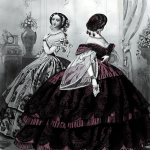The Zen patriarchs encourage us to manage attachment, craving and ignorance. I wrote about the Buddhist understanding of pain and suffering here.

“Before enlightenment, chop wood, carry water. After enlightenment, chop wood, carry water” is a famous Buddhist saying. The saying encourages us to focus on the present moment. In that way, we enjoy even the most mundane tasks, such as washing the dishes, and we tolerate even the most unpleasant tasks, such as losing money.
Thich Nhat Hanh, a Buddhist monk, wrote, “If while washing dishes, we think only of the cup of tea that awaits us, thus hurrying to get the dishes out of the way as if they were a nuisance, then we are not ‘washing the dishes to wash the dishes.’ What’s more, we are not alive during the time we are washing the dishes.”
Rather than clanging dishes and complaining, maybe we should simply accept that now is the time to wash the dishes and do so mindfully. “Chop wood, carry water, wash dishes.”
Are You Sure that the Stock Market Does NOT Impact You?
The recent stock market decline provides a recent and relevant example of how pain can lead to suffering.
Maybe you do NOT think that the stock market impacts you. “I don’t even own any stocks,” you might say. Does your 401k or IRA own any stocks? Do you work for a company that issues stock? Does your livelihood or your company’s business depend on people who own stocks or companies that issue stock?
Will you be able to absorb the impact of tariffs, generally estimated at around $4,000 per household? Will you be impacted if businesses, consumers and investors lose confidence in the economy? If tariffs lead to higher inflation (or worse, deflation) or higher interest rates or higher deficits (thus, higher taxes) is your consumption or investment immune from any of these increases?
My purpose is NOT to alarm anyone, but to say that if you do NOT think that the stock market impacts you, then you might want to think again.
Attachment, Craving and Ignorance
Maybe you already know that or you would rather NOT know it. Regardless, does your pain become suffering? The Buddhists tell us that suffering comes from attachment, craving and ignorance.
What are you attached to? Are you attached to your stocks since you refuse to sell them at a loss today? Would you rather sell them at a larger loss in the future? Would you buy them at this price? If not, then why do you own them? Are you attached to your view or your advisor’s view of the market? Would you (or your advisor) change your mind if circumstances change?
What are you craving? Do you want certainty or security? Are there things about the situation that you can control and other things that you can accept that you can NOT control? Do you worry that you can NOT buy a new house or a new car? Are those needs or wants? Do you worry that the President made a mistake and that you should NOT have voted for him? Can you change that?
What are you ignorant about? Do you understand the economy, international trade and the stock market? If not, should you become an expert or seek out an expert or seek out an astute reporter? If you do NOT understand these things, and you will NOT make an effort to understand them, then can you accept the resultant insecurity and uncertainty?
The Zen patriarchs encourage us to manage attachment, craving and ignorance.
Think Like a Buddhist
Hopefully you can accept that now is the time to wash the dishes and do so mindfully. Can you accept that now is the time to lose money in the stock market and do so mindfully?
What is really happening? Knowing that you can NOT avoid the pain (since you can NOT control the Chinese government or the economy or the market or the President) can you avoid suffering? What can you really do to control your attachment, reduce your craving, and resolve your ignorance? Can you really accept the things that are happening to you that you can NOT control?
If the game has changed, are you adopting a new playbook, or are you reverting to the same old playbook?
One of the Zen patriarchs said, “Do not seek the truth; only cease to cherish opinions.” That is, truth is evident. He was encouraging clear-headedness, without attachment, craving or ignorance.
What would a detached, satisfied and informed person do to avoid or reduce suffering in this situation? Do that.
The Zen patriarchs encourage us to manage attachment, craving and ignorance.
Chop wood. Carry water. Buy stocks, Sell stocks.
If you want to keep up with the latest from You Might Be Right, please subscribe.
The Way received a 2024 Nautilus Book Award.
If you enjoyed this article, please leave a comment at the bottom of this page.
Thanks for reading You Might Be Right!!













